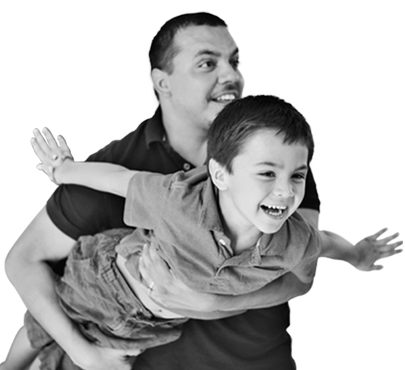What Are the Most Common Signs of Autism?

Discovering that your child may have autism can be a challenging and overwhelming experience for any parent. Autism Spectrum Disorder (ASD) is a neurodevelopmental condition that affects communication, social interaction, and behavior. Early detection and intervention are crucial for helping children with autism thrive and reach their full potential. In this blog post, we will explore some common signs and symptoms of autism, as well as provide guidance on seeking support and resources for your child and family.
Recognizing the Signs:
Autism manifests differently in each individual, and the signs may vary in severity. Some common signs to look out for include:
- Social Interaction Challenges: Children with autism often struggle with social cues and may find it challenging to make eye contact, engage in reciprocal conversation, or understand social norms.
- Communication Difficulties: Delayed speech development, difficulty expressing needs and emotions, repetitive language patterns, and echolalia (repeating words or phrases) are common communication challenges in children with autism.
- Repetitive Behaviors and Interests: Engaging in repetitive movements (e.g., hand flapping, rocking), fixating on specific topics or objects, and adhering to rigid routines are typical behaviors seen in autism.
- Sensory Sensitivities: Many children with autism experience sensory sensitivities, such as being hypersensitive or hyposensitive to certain stimuli like sounds, lights, textures, or smells.
Seeking Professional Evaluation:
If you notice several of these signs in your child, it's important to seek a professional evaluation. Start by consulting your child's pediatrician or a developmental pediatrician who specializes in diagnosing and treating developmental disorders. They should provide a referral to a qualified diagnostic professional who can conduct a comprehensive assessment, which may involve observations, interviews, and standardized tests to determine if your child has autism.
Early Intervention Programs:
Early intervention plays a vital role in supporting children with autism. If your child is diagnosed with autism, there are various intervention programs and therapies available to help them develop essential skills. These may include Applied Behavior Analysis (ABA), speech therapy, occupational therapy, habilitation, clinical family coaching, counseling, and social skills training. Early intervention can significantly improve long-term outcomes for children with autism.
Building a Support Network:
Navigating autism can be challenging but remember that you're not alone. Building a support network is crucial for both you and your child. Connect with other parents who have children with autism through local support groups or online communities. They can offer valuable advice, resources, and emotional support. Additionally, consider reaching out to organizations and nonprofits that focus on autism advocacy and support. AZA United's Family Support program helps families understand and navigate the systems of care for individuals with autism. We provide relevant and accurate information, coaching, and community resources through phone consultation, in-person appointments, group events and trainings. Our Family Support Team can coach you through a wide range of needs, whether you are wondering if your child has autism or looking for treatment and services. Book your call with our Family Support Team here.
Promoting Acceptance and Inclusion:
It's essential to promote acceptance and inclusion in society to create a supportive environment for individuals with autism. Educate your family, friends, and community about autism and help them understand the unique strengths and challenges individuals with autism may face. By fostering inclusivity, we can create a world where every child with autism can thrive and be celebrated for their individuality.
Recognizing the signs of autism in your child and seeking early intervention can make a significant difference in their development and overall well-being. Remember that a diagnosis of autism is not a limitation but an opportunity to understand your child better and provide the support they need to reach their full potential. Seek professional evaluations, access available resources and support networks, and work together to create a world that embraces and celebrates the diversity of individuals with autism.
AZA United's Family Support Team provides support and guidance for families facing any number of challenges as they navigate the Autism journey. This service is available at no charge to all members of the autism and developmental disability community. You may make a phone appointment that works with your schedule by visiting azaunited.org/supportcall
You may also be interested in:
For more helpful resources and information, follow AZA United on social media:






